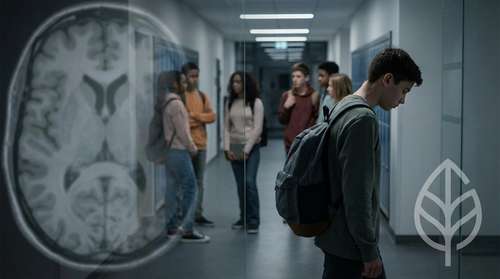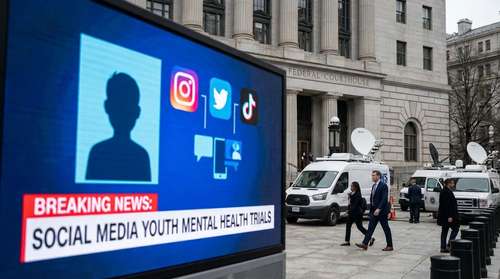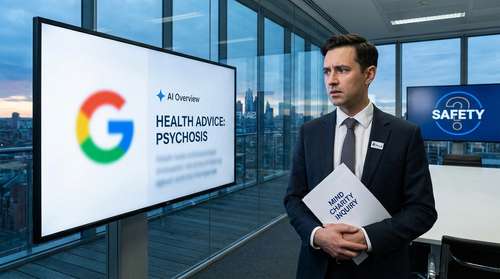Imagine sitting in a doctor's office and getting a brain scan that not only shows what’s happening inside your head right now, but also hints at your future brain health. It might sound like something out of a science fiction movie, but emerging research is turning this idea into reality. With the development of innovative medical imaging techniques, experts are beginning to use a single brain scan in middle age to predict age-related conditions like dementia. This breakthrough could revolutionize how we approach preventive medicine, early detection, and brain health care.
Many of us have experienced the anxiety of wondering what the future holds, especially as we age. With the help of these techniques, we might soon have answers to questions about our risk for age-related diseases. It’s both fascinating and a little daunting to consider that a simple snapshot of our brain might hold the key to unlocking our neurological future.
The Science Behind a Single Brain Scan
Recent advancements in medical imaging and brain analysis have allowed researchers to focus on subtle changes in the aging brain. A single brain scan, once only used to detect structural abnormalities, is now showing promise in identifying early signs of conditions like dementia and other neurodegenerative diseases. Researchers believe such scans can measure the difference between chronological age and biological age, offering valuable insights into one’s true brain health and potential cognitive decline.
This innovative approach leverages advanced imaging techniques that capture detailed data about the brains of middle-aged individuals. Rather than just looking at obvious markers, scientists are delving deep into the nuances of neural tissue loss, vascular changes, and even inflammation. These factors contribute to a person’s biological age, which sometimes differs markedly from the number of candles on their birthday cake.
The idea here is simple yet groundbreaking: if we can predict age-related conditions early on, we have a unique opportunity to intervene before severe neurological conditions set in. In essence, detecting discrepancies in the aging brain could open a pathway for early diagnosis and preventive care, potentially slowing down or even halting the progression of diseases like dementia!
Potential Impact on Early Detection
The concept of early detection in healthcare isn’t new, but applying it to brain health takes on a whole new level of importance. The ability to use a single brain scan to predict age-related conditions offers a promising tool for early diagnosis. Thinking about it, early detection is like catching a small fire before it engulfs your home. By identifying the risk factors early, individuals can work with their healthcare providers to implement lifestyle changes and preventive treatments that might delay or even prevent the onset of severe cognitive decline.
For many people, understanding the early stages of neurodegenerative diseases is the first step in taking proactive measures to safeguard mental health. Experts argue that, with a more precise measure of your brain’s biological age, you can make targeted choices in your diet, physical activity, and cognitive exercises. This process is a welcoming reminder that prevention is sometimes the best medicine when it comes to brain health and dementia.
In fact, one common analogy among researchers is comparing this technology to a high-precision radar. Just like a radar picks up a distant storm, a single brain scan can detect the early signs of underlying age-related conditions long before traditional symptoms show. The potential for such newfound accuracy in early diagnosis is truly exciting.
Lifestyle Changes and Preventive Medicine
Once you've had your brain scan and discovered that your biological age might be advancing faster than expected, the next step is making lifestyle choices that support brain health. It’s a bit like getting a weather forecast that warns of rain—you then decide whether to carry an umbrella, wear a raincoat, or even change your route entirely.
Integrating insights from a single brain scan into your daily routine could mean adjusting your diet, upping your physical exercise, and engaging more in cognitive activities. It’s all about preventive medicine. With early detection, healthcare providers can also tailor therapies that target the specific areas of concern. Imagine your brain as a complex machine—small tweaks in your lifestyle can lead to big improvements in its overall performance and longevity.
People are already embracing the idea of better brain health by incorporating regular mental challenges and staying socially active. Whether through learning a new language, solving puzzles, or participating in community events, every little effort adds up to protect your cognitive vitality. Such preventive steps are supported by a growing body of research that emphasizes the importance of early intervention.
Implications for the Future of Healthcare Technology
Looking ahead, the fusion of advanced brain scans and healthcare technology could redefine how we approach age-related diseases. As this field grows, we can expect to see more tools and techniques that provide even deeper insights into the aging brain. The hope is that these advancements will lead to broader access to early diagnosis and even more personalized treatments for conditions like dementia.
It’s easy to get excited thinking about a future where a single brain scan at age 50 or 60 could serve as a window into your health decades down the line. Not only does this approach promote early detection, but it also empowers individuals to take charge of their brain health. When you know your risks, you can work collaboratively with your doctors to map out a personalized plan that might include new medications, lifestyle modifications, or additional scans over time.
Healthcare technology is evolving rapidly, and the integration of artificial intelligence in neuroimaging is another key development. AI algorithms can mine vast amounts of data from these scans, comparing them to extensive datasets to identify patterns that a human eye might miss. This synergy between medical imaging and high-tech brain analysis is setting the stage for a revolution in preventive medicine and early diagnosis.
Why This Matters
The prospect of predicting age-related conditions using a single brain scan is more than just an exciting scientific breakthrough—it could fundamentally change how we approach brain health. For individuals predisposed to neurological conditions, knowing your real biological age could be a wake-up call to start preventive measures early. Without such technology, many might not realize the subtle changes occurring in their brains until it’s too late.
Consider this: by predicting age-related conditions like dementia early on, you’re not just buying time; you’re gaining the possibility of a better quality of life. Early detection in brain health can turn the tide in managing mental health and cognitive decline. With targeted interventions, we might soon see a reduction in the severity of age-related diseases, changing the narrative around aging.
Moreover, the role of such a brain scan extends beyond just health benefits. It serves as a beacon of hope for millions who worry about neurodegenerative diseases. With preventive medicine steering the way forward, we are gradually moving toward a future where aging is a journey enriched with proactive care and informed choices!
Overall, these advances are not just promising for individuals—they could lead to significant shifts in public health policies and healthcare practices. Imagine a world where your routine checkup includes a single, powerful brain scan that sets in motion a series of health benefits tailored just for you. It’s an exciting time for healthcare technology, and the potential impact on neurodegenerative disease prevention is profound.
In summary, while much work remains to be done, the idea of using a single brain scan to predict age-related conditions like dementia opens up new frontiers in preventive medicine. Embracing early detection, making targeted lifestyle changes, and leveraging advanced medical imaging may pave the way for healthier aging populations. The future of brain health is on our side, and it’s an inspiring journey that we can all be a part of!




